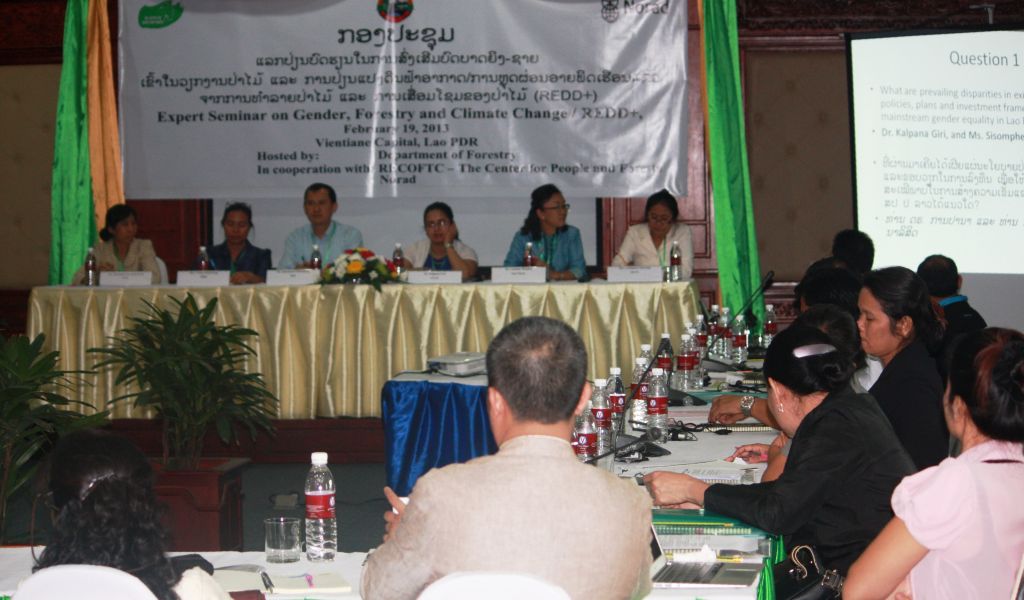Mainstreaming Women’s Perspectives in Policies and Practice in Climate Change and REDD+

RECOFTC's Grassroots Capacity Building for REDD+ project team shares highlights from the recent national level expert seminar on Gender, Forestry, Climate Change and REDD+, organized jointly by RECOFTC – The Center for People and Forests and the Department of Forestry, Lao PDR.
Despite some well documented studies on the extensive knowledge, skills, and hands-on experience of women in using and managing forests and natural resources in general, the current debate on REDD+ has yet to integrate the existing knowledge and specific forestry based needs and aspirations of women in its planning and policy processes. Unless addressed in time, this omission will have adverse consequences in the long run as the specific needs and aspirations of women will be ignored, pushing them further to the periphery, thus adding to their vulnerability and depriving them from the potential benefits of REDD+.
RECOFTC – The Center for People and Forests and the Department of Forestry in Lao PDR together organized a national seminar on gender, forestry, climate change and REDD+ on February 19, 2013 in Vientiane, Lao PDR, under RECOFTC's ongoing project “Grassroots Capacity Building for REDD+ in Asia-Pacific.” A total of 45 participants took part including government agencies and the Lao Women’s Union, environmental I/NGO’s, donors, and civil society, among others. The topic seemed to be of particular interest, and demand to participate in the workshop was high.
In his opening remarks, Mr. Khamphay Manivong, the Deputy Director General of the Department of Forestry, Lao PDR, reminded everyone of the important roles played by women in forest management and conservation given their specific knowledge and skills in Lao society. He then emphasized the need to recognize this in the promotion of gender equality in climate change and REDD+ initiatives. He also highlighted the critical importance of building the capacity of women at different levels so they can actively and effectively participate in decision-making processes.
One of the aims of the workshop was to bring everyone onto the same page about existing policies and plans to strengthen gender equality in forest management and national strategy development on REDD+ and climate change. A presentation by the Lao PDR National Focal Point for UNFCCC and the Kyoto Protocol, helped audiences to understand this better. This was followed by presentations from different organizations sharing practical experiences and lessons learned from the field. The speakers helped to identify and gather key issues, challenges, and gaps in the inclusion of women as effective stakeholders in forest based climate change adaptation and mitigation. Having identified the challenges, delegates discussed approaches and methods to address and overcome them, for example by making use of opportunities for gender responsive capacity building initiatives at different levels, and communicating the experience widely in climate change discussions and policy processes in Lao PDR.
The second part of the workshop consisted of a detailed panel discussion with gender experts which elicited a very lively discussion and provided a great networking opportunity for different organizations. A number of potential areas for jointly working towards increased gender awareness, stronger policies, and plans in the forestry sector were identified.
To learn more about this seminar, please see the event press release. Keep an eye on this space for more information on the results of this seminar, including a forthcoming synthesis report and a policy brief.

